CySky: Forensics
CySky Notes Forensics
Forensics
Challenges
- Version Control (easy) n/i
- File Carving (medium)
- PDF (easy) n/i
- Magic Bytes (medium)
- Docter (medium) n/i
- The Book (hard)
Main Tools
The main tools used in these challenges:
- binwalk (File Carving)
- www.Metadata2go.com (PDF)
- hexed.it (Magic Bytes)
- volatility3 (The Book)
- crackstation.net (The Book)
File Carving
From CySky: The security team has found a rather strange file exiting the network. We’re not sure if it’s containing any sensitive information. Help us identify what’s in it.
Tools used
- binwalk
Process
You are given a file to download called green_file. Your OS might open this and show a small field of green pixels. In Linux, type file green_file. file identifies this file as a PNG image.
Run binwalk on green_file to search through binary file for magic bytes.
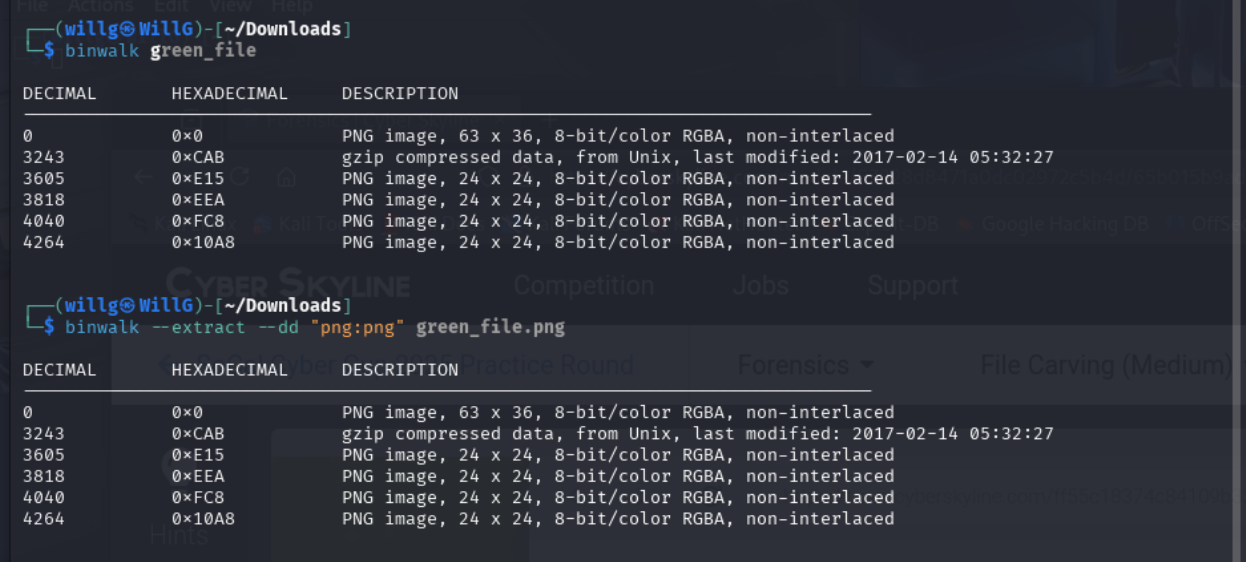
Five PNG files, one CAB (gzip) file, and a /flags directory can be extracted from green_file. The /flags directory contains the flags.txt, printed below.
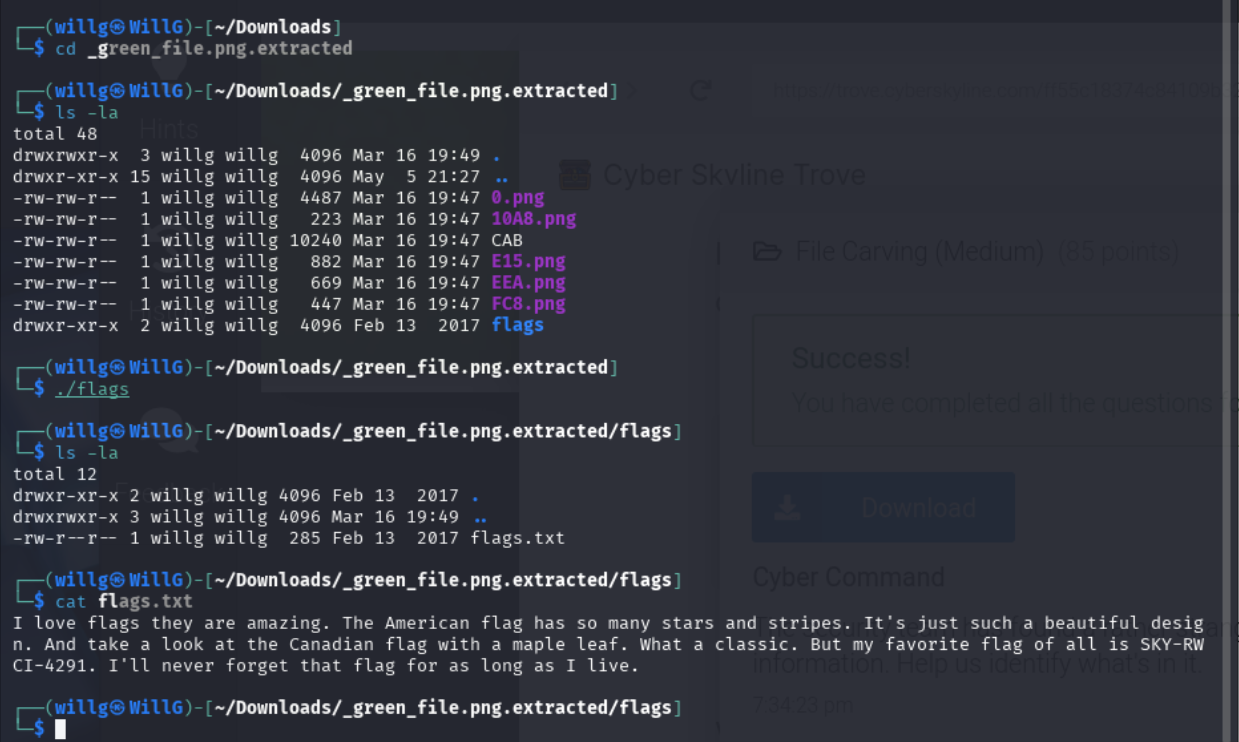
What is the format of the file?
PNG
How many files can be extracted from the binary?
Six
What is the hidden flag in the file?
SKY-RWCI-4291
Magic Bytes
From CySky: This file appears to be changed in some way. Can you recover the original?
Tools used
- HexEdIt (https://heded.it)
Process
We are provided an image named flag.jpeg. Of course, this file appears to be a JPG file. However, when you attempt to open this, an message appears that there is an error interpreting the JPEG image because of an “Unsupported marker type 0xf6”.
With some light Googling, it appears this specific error “…is usually related to a wrong file format and extension” per Stellar Data Recovery (www[.]stellarinfo[.]com).
Using Gary Kessler’s reference www.garykessler.net/library/file_sigs_GCK_latest.html, a JFIF/JPE/JPEG/JPG file should have the following bytes
FF D8 FF E0 xx xx 4A 46 49 46 00.
Using Wikipedia’s List of File Signatures en.wikipedia.org/wiki/List_of_file_signatures, we see a similar list:
FF D8 FF E0 00 10 4A 46 49 46 00 01
Using HexEdIt (see below), we can see that our actual header file signature is:
FF D8 FF EO 00 10 4A 46 49 46 00 0D


Therefore, this might be a matter of changing the last byte from 0D to 01, but notice also that the trailing bytes 60 82 do not match the trailer for a JPG, FF D9. According to Kessler, the header and trailing bytes on a PNG should be:
89 50 4E 47 0D 0A 1A 0A header
49 45 4E 44 AE 42 60 82 (IEND®B‚…)` trailer
The existing trailer is:
49 45 4E 44 AE 42 60 82
Thus it appears we have either a JPG with a malformed header and trailer, or a PNG with a malformed header.
- For JPG: Changing the bytes in the header and the trailer to match a JPG still results in the same error.
- For PNG: Changing the header to match a PNG does not immediately fix the problem: “Invalid IHDR length”. If we open a known good PNG file, the header through the previous JPG bytes is:
89 50 4E 47 0D 0A 1A 0A 00 00 00 0D
Replacing the remaining bytes, the PNG opens and shows the flag.
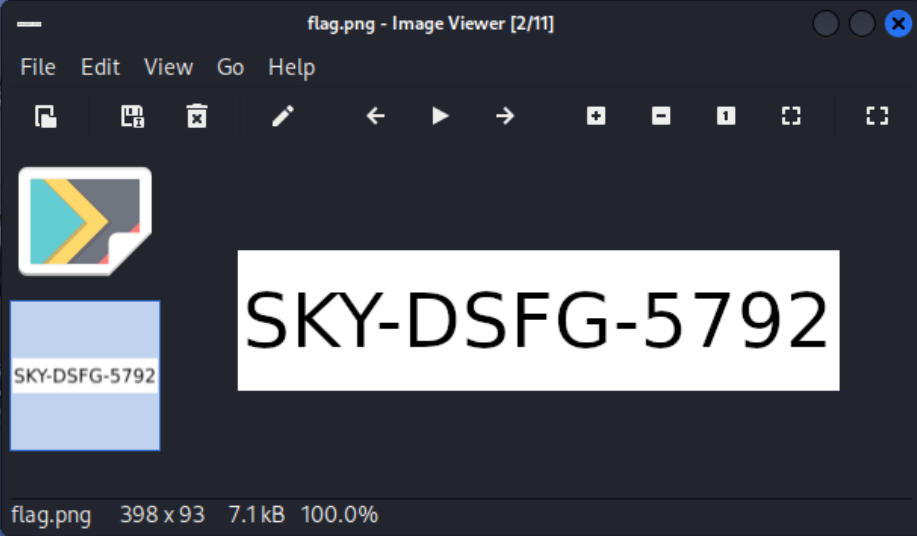
What is the original file type?
PNG
What is the flag?
SKY-DSFG-5792
The Book
From CySky: We have obtained a live system memory dump from a hacker’s computer before it fried itself. The hacker was looking at a suspicious document. Can you retrieve the lost information?
Tools used
- volatility3
- crackstation.net
Process
The memory dump file is named memdump.mem.xz. You will want to unzip the .xz file using the command xz -d memdump.mem.xz, which will unpack memdump.mem.
Run volatility3 to analyze memdump.mem.
What OS was this dump taken from?
From
file memdump.mem:Windows
Since we now know this memory dump comes from a Windows environment, we can use the command ./vol.py -f ./memdump.mem windows.envars.Envars.
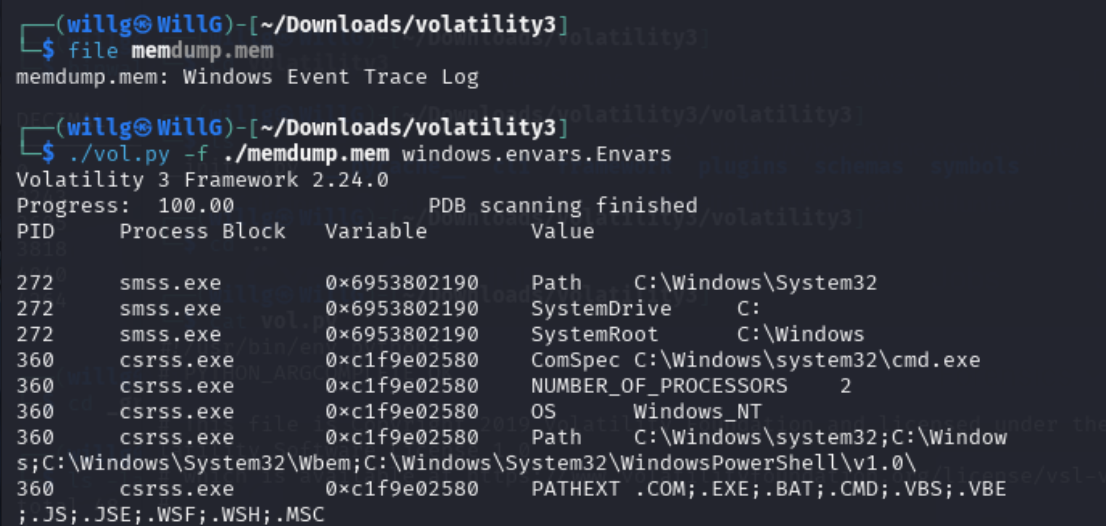

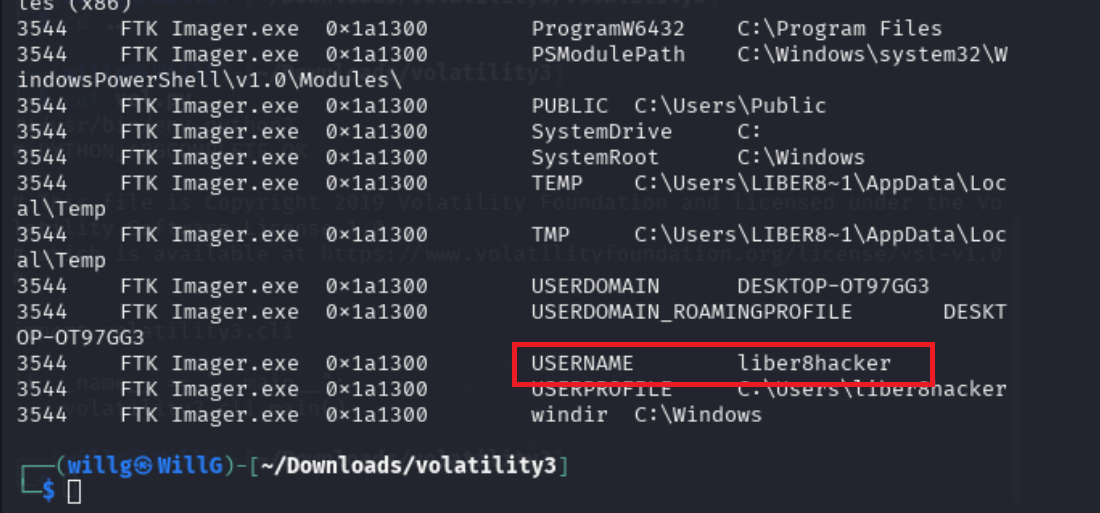
What is the name of the computer?
DESKTOP-OT97GG3
What is the name of the user that was logged in?
liber8hacker
Next, run a scan for files ./vol.py -f ./memdump.mem windows.filescan.FileScan to print out all file objects present. These can be reviewed, and if any files are of interest they can be extracted by using this command and the virtual address: ./vol.py -f ./memdump.mem -o ./dump windows.dumpfiles.DumpFiles --virtaddr <file address>
We are given a hint that there is a SQLite file of interest. SQLite file extensions can be .sqlite,.db, and .db3. There is one potential database file of interest:

What is the full filepath and file of the file of interest?
\Users\liber8hacker\Desktop\black_book.db
The recovered files can be opened in SQLite and reveal info from the Black Book:
What is the real name of “cloud”?
“Cloud” is alias #8, which corresponds to:
gloria hampton
We can use volatility3 one last time to recover hashes: ./vol.py -f ./memdump.mem windows.hashdump.HashDump
In my case, this results in an argument PLUGIN: invalid choice error. To understand the error, we need to add -vv (verbose) to the previous command: ./vol.py -f ./memdump.mem windows.hashdump.HashDump -vv


This problem took some Googling. The module that HashDump needs is named pycryptodome. After some false-starts, the solution is to open a virtual environment, then to re-install volatility3 and pycryptodome in that environment.
1
2
3
4
python3 -m venv venv
source venv/bin/activate
pip install volatility3
pip install pycryptodome
We can rerun the previous command (without the -vv) and volatility3 successfully returns the hashes, and we can use https://crackstation.net to crack the hash:

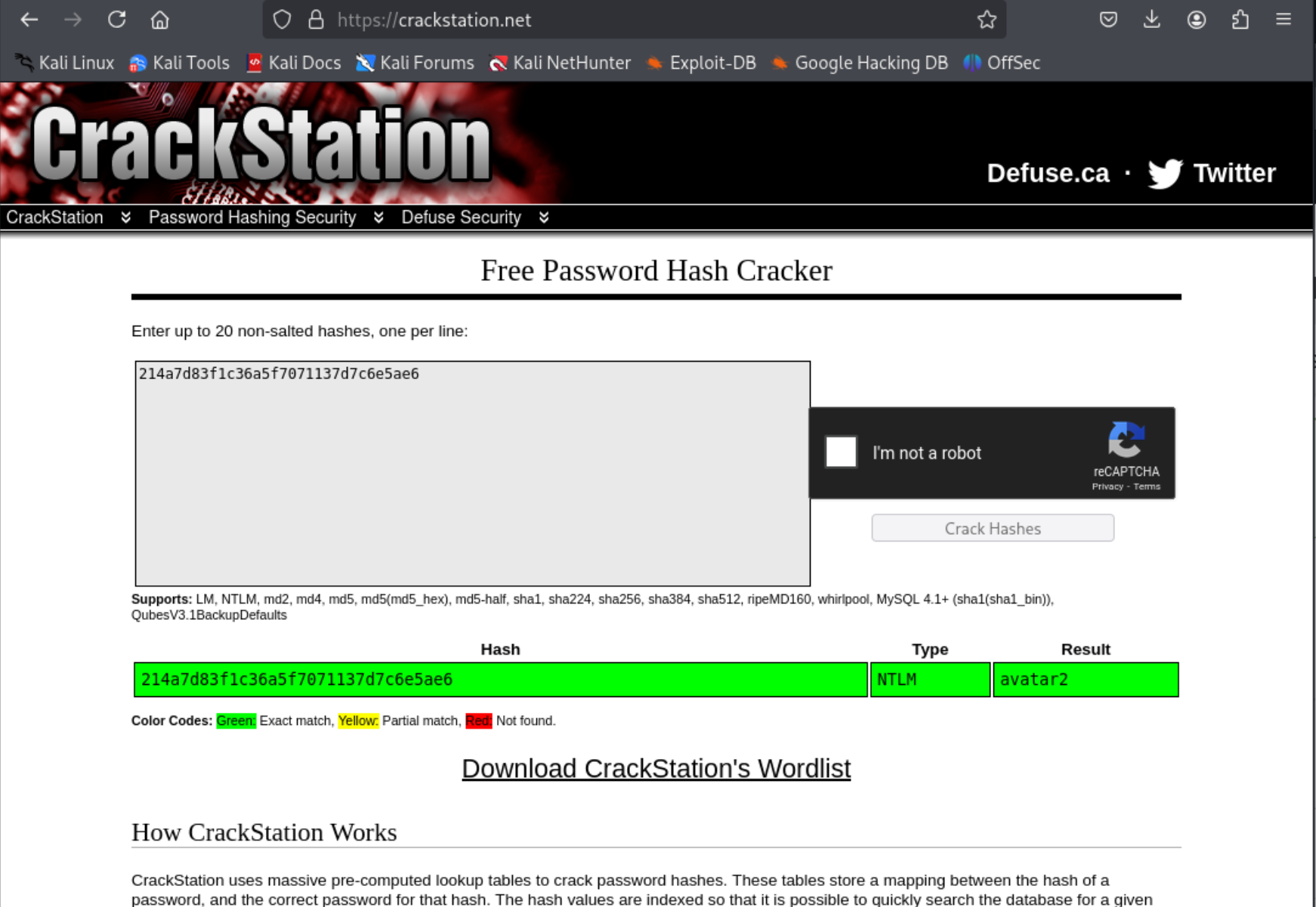
What is password of the currently logged in user?
avatar2
